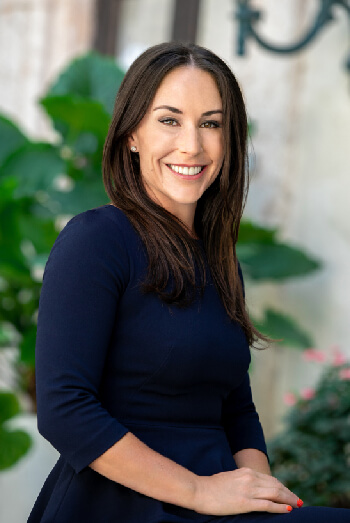Equestrian clinics and workshops provide valuable opportunities for riders, trainers, and horse enthusiasts to improve their skills and share knowledge. However, hosting these events in Florida comes with significant legal responsibilities. Whether you’re organizing a one-day clinic or a multi-day retreat, understanding your liability exposure and taking proper precautions can help protect your business, your property, and your participants.
From liability waivers and insurance policies to participant screening and facility safety, there are multiple layers of risk management to consider. Here’s what Florida equine professionals should know when planning and hosting clinics and workshops from Gueronniere Law, P.A..
Use of Liability Waivers
Florida law provides some liability protection for equine professionals under the Florida Equine Activities Liability Act (Chapter 773, Florida Statutes). However, relying solely on statutory protections is not enough. A well-drafted liability waiver is your first and best defense against legal claims.
To be effective, your waiver should:
- Clearly identify the inherent risks of equine activities
- Include the exact warning language required by Florida law
- Be signed before participation begins
- Be written in clear, accessible language that participants (or their guardians) can understand
- Be signed by a parent or legal guardian if the participant is a minor
Additionally, consider requiring photo ID upon check-in to verify waiver signatures and maintain digital records for easy retrieval if needed.
Appropriate Insurance Coverage
General liability insurance is a must for any clinic or workshop, but hosting equine events often requires more specialized coverage. Consider policies that include:
- Equine event insurance for clinics, workshops, and competitions
- Participant accident coverage for injuries occurring during mounted or ground instruction
- Spectator liability coverage in case of incidents involving non-participating guests
- Care, custody, and control (CCC) insurance if participants are boarding horses with you temporarily
Be sure to disclose the nature of your event to your insurer, including expected attendance, activities offered, and the types of horses involved. This ensures you’re fully covered and avoids policy exclusions.
Participant Screening and Instructor Qualifications
Not every rider is a good fit for every clinic. Screening participants can reduce your liability and improve safety. Strategies include:
- Requiring pre-registration forms that ask about the rider’s experience level, age, and medical concerns
- Encouraging trainer references or video submissions for higher-level instruction
- Verifying that all participants wear appropriate safety gear, including ASTM/SEI-certified helmets
In addition, clinic hosts should vet the qualifications of all instructors involved. Confirm professional certifications, insurance coverage, and teaching experience before advertising the event. In Florida, if an instructor is providing training services under your business umbrella, their actions may create liability for you as the host.
Facility Safety and Risk Mitigation
Your facility should be inspected and prepared before any clinic or workshop takes place. Common safety standards include:
- Clearly marked riding arenas with proper fencing and footing
- First aid kits readily accessible in both the barn and arena areas
- Fire extinguishers, water access, and safe electrical systems
- Designated spectator areas away from horses in motion
- Posting of the Florida equine activity statute warning signs at all entrances and registration areas
Consider hiring additional staff or volunteers to assist with monitoring the event, especially during peak hours or youth sessions.
Emergency Response Planning
Even with the best precautions, accidents can happen. A solid emergency plan helps mitigate chaos and demonstrates due diligence.
- Keep a written emergency response plan on hand, including protocols for injuries, loose horses, fires, and severe weather
- Ensure staff and volunteers know who to contact and where emergency supplies are stored
- Post emergency contact information (including local hospitals and vets) in multiple locations
- Require participants to list an emergency contact and disclose any relevant medical issues at registration
Document any incidents, including photos and witness statements, in case they lead to an insurance claim or legal dispute.
Special Considerations for Minors and Spectators
When hosting youth riders or allowing family members to attend, additional care is required.
For minors:
- Require a signed parental waiver
- Have age-appropriate activities and supervision ratios
- Prohibit horse handling without adult assistance unless explicitly authorized
For spectators:
- Designate safe viewing areas, clearly separated from mounting blocks, gate entrances, and working horses
- Communicate safety rules verbally and in signage, including no running, loud noises, or feeding animals
- Consider having volunteers on-site to guide and manage the flow of guests
By proactively managing these details, you help prevent injuries and reduce your legal exposure.
Protecting Your Event and Your Reputation
Equestrian clinics and workshops can be incredibly rewarding, but they also carry real legal risks. In Florida, where equine activity is closely intertwined with state law, understanding your obligations and planning carefully are crucial to hosting a successful and incident-free event.
At Gueronniere Law, P.A., we help equine professionals, facility owners, and instructors across Florida draft enforceable liability waivers, review insurance policies, and design event protocols that reduce legal risk. Whether you’re planning your first clinic or hosting annual educational programs, we can guide you through the legal considerations that help keep riders, horses, and your business safe. Call today for guidance.
